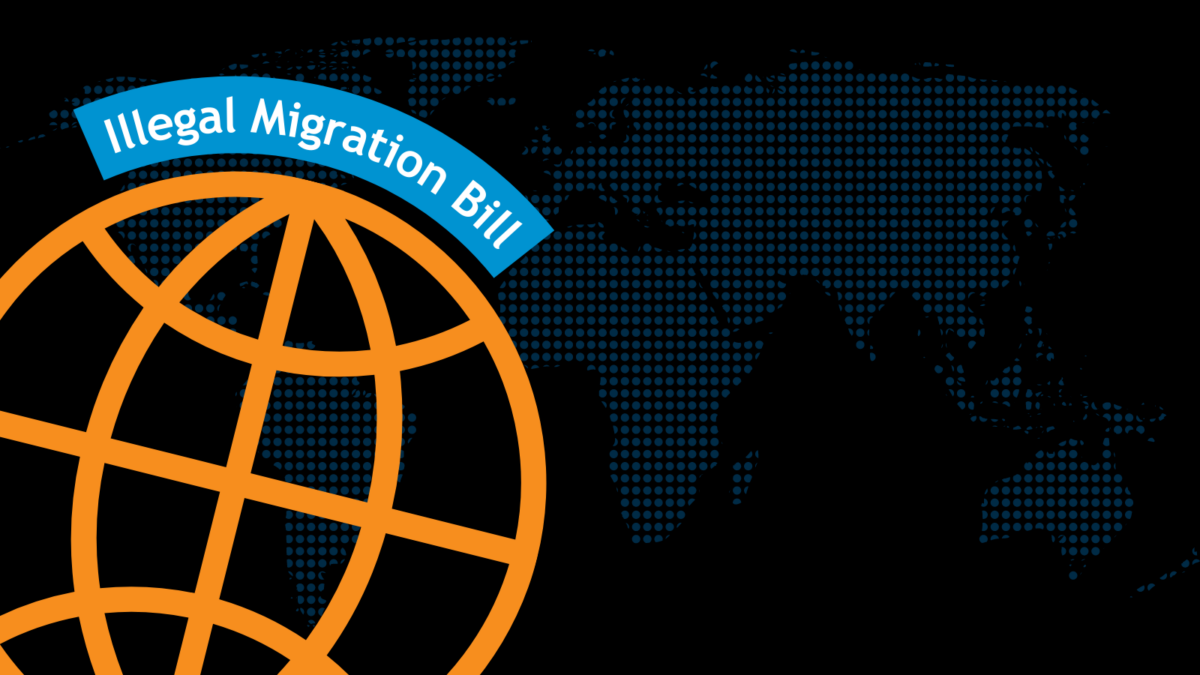We’re in a time where people who are already so vulnerable are being subjected to more distress and inequality. The Illegal Migration Bill will be a devastating addition to this. The UN High Commissioner for Refugees states “This new legislation significantly erodes the legal framework that has protected so many, exposing refugees to grave risks in breach of international law”.
Recently, I passed a rapid policy against the UK Government’s Illegal Migration Bill. The policy states:
“The Scottish Youth Parliament believes that the UK Government’s Illegal Migrant Bill is a direct violation of young people’s human rights and calls for the UK government to withdraw the Bill and uphold its commitment to protect and care for unaccompanied or separated asylum-seeking children.”
Rapid Policy Proposal by Imaan Hussain MSYP passed in July 2023
This policy action was taken urgently to try, as others have done from the United Nations, civic society, politicians from different parties and many in the House of Lords, to ensure protection for the most vulnerable including victims of slavery and trafficking and children. Despite the concerns about the Bill, unfortunately, the UK Government won the final votes in the House of Lords and the Bill is expected to become law this year. However, this isn’t the end. If elected politicians don’t show compassion or regard for international laws and obligations to the most vulnerable, it is up to us to introduce some compassion to them.
What is the Illegal Migration Bill?
The Illegal Migration Bill is part of a wider agenda of hostility towards refugees, following on from the Nationality and Borders Act in 2022. The Bill aims to make tougher legislation to stop small boats coming to the UK, as the UK Government says it’s not safe and these people drain the UK’s resources.
The key element of the Illegal Migration Bill is that if the UK Government deems that you “enter the UK illegally … you will be detained and promptly removed either to your home country or to a safe country where any asylum claim will be considered” (Home Office, 2023). Originally, Rwanda was referenced as the ‘safe country’, but the Court of Appeal has ruled this unlawful.. The UK government is looking to challenge this in the Supreme Court.
Why is this concerning?
The UK itself has noted that most people seeking asylum are genuine as they have granted 73% refugee status or protection in the initial claim (Refugee Council, 2023). Research also shows people seeking asylum in most cases have to make dangerous journeys as getting a visa isn’t possible. Their right to asylum will now be prevented, as genuine people seeking asylum via dangerous journeys will be made illegal and will be unable to apply for asylum in the UK.
If you look around the world there is ongoing and serious conflict affecting countries where the UK has a historic interest. Conflict and persecution create refugees, as people have to seek asylum because it is not safe to stay where they live. Whether it is a translator who helped the UK military and is facing threats in Afghanistan, women getting persecuted in Iran for showing any form of independence, children getting caught up in the conflict in Sudan, or refugees trying to flee violence in Syria due to bombing and violence. The UK Government have rightly welcomed Ukrainian refugees warmly who are facing persecution. Although other people seeking asylum may look different, their persecution and vulnerability are not lessened, and the Government has to extend its approach to all types of refugees.
The Children and Young Persons Commissioner Scotland (CYPCS), where I am a Young Advisor, have been vociferously against this Bill. They have called on the Scottish Parliament and Scottish Government to use legal action to stop the bill where it encroaches on its own powers, particularly in relation to the human rights of trafficked victims and unaccompanied children and young people:
“[The Bill is] a direct assault on the concept of universality of human rights and the rule of law. It is a clear breach of the UK’s obligation under a broad range of human rights treaties, including the European Convention on Human Rights (ECHR), the UN Convention on the Rights of the Child (UNCRC), the Refugee Convention 1951, and the Council of Europe’s Convention on Action against Trafficking in Human Beings.”
Children and Young People’s Commissioner briefing to MSPs
Overall, the Bill passing represents something wider, it creates a culture where unjust conditions are tolerated and a stigmatised society will be built. This is an attack on our equality. It may seem like an impossible situation, but this is not the time to give up. This is not the end as if we accept injustice and consign people to persecution, ignoring our obligations, then we become a country that is oppressed just as refugees are, but oppressed in our own conscience and humanity.
What can you do?
- SYP joined hundreds of organisations across Scotland calling for the Bill to be rejected. As an individual, you can also show solidarity and sign the open letter by the Scottish Refugee Council, Joint Council for the Welfare of Immigrants, Women for Refugee Women, and JustRight Scotland.
- Engage young people in your constituencies about the issue and help inform them about the challenges faced by people seeking asylum. Counter any myths, there are a number of resources you can read, such as one by the Refugee Council and The Children’s Society.
- Raise your voice on social media and to decision-makers. Follow organisations dedicated to protecting the rights of refugees and asylum seekers to find out how you can help.


